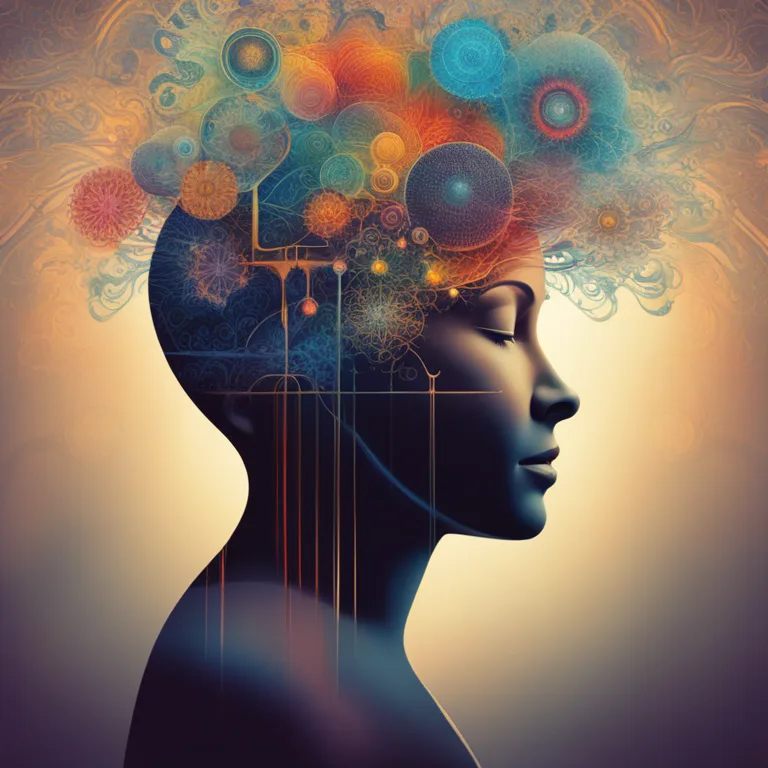
Meditation's Role In Easing Depression
Discover how meditation practices can contribute to managing depression and enhancing mental wellness.
article by Hina Kurosawa
Introduction to Meditation and Mental Health
Meditation has become a mainstream approach for enhancing mental health, attracting many with its promise of peace and mindfulness. More than just a trend, meditation is deeply rooted in various cultural practices and has been scrutinized by the scientific community for its potential in treating mental conditions. As cases of depression continue to rise globally, it's essential to explore multiple avenues of therapy and support, including meditation. This article delves into current understandings of meditation's efficacy in combating depressive symptoms and offers insight into how it might integrate with other treatment modalities.

Understanding Depression
Depression is a complex mental health disorder characterized by persistent sadness, loss of interest, and a myriad of physical and emotional problems. It's vital to recognize that depression goes beyond occasional blues; it's a debilitating condition that can significantly impair a person's daily functioning. While traditional treatment often includes therapy and medications, these methods can be complemented by supplementary practices like meditation. The integration of meditation is particularly appealing due to its accessibility and self-empowering nature.

The Science Behind Meditation
Numerous studies highlight meditation's potential impact on the brain. Predominantly, it affects areas involved in regulating emotions and stress responses. Neuroimaging studies have suggested that consistent meditation may lead to changes in brain structure and function, which can help support emotional regulation, a critical aspect of depression management. Meditation is believed to enhance neural plasticity, creating a brain that's more adept at managing stress and negative emotions.

Meditation Techniques for Depression
There are multiple meditation techniques suitable for those struggling with depression. Mindfulness meditation encourages practitioners to observe their thoughts without judgment, while focused-attention meditation involves concentration on a single object or thought. Loving-kindness meditation fosters a sense of compassion and self-love, beneficial for those with a harsh self-critical voice. It is important for individuals to experiment with different meditation styles to find the one that best suits their needs and preferences.

Integrating Meditation with Other Treatments
Meditation should not be seen as a standalone cure for depression but rather as part of a comprehensive treatment plan. It can be an effective complement to therapy, medication, and lifestyle changes. Professionals might advocate incorporating meditation into cognitive-behavioral therapy or other therapeutic approaches, enhancing their effectiveness. This integrated approach empowers individuals to take an active role in their mental health journey.
Guidelines for Starting a Meditation Practice
For those considering meditation for depression, it’s essential to start slow. A few minutes a day can suffice, gradually increasing the duration as comfort with the practice develops. It is equally important to create a calm space free from distractions and to be patient and kind to oneself during the process. Signing up for meditation classes or using guided meditation apps can provide structure for beginners.
Look to the Future: Astrological Insights for Mental Health
Astrological perspectives offer a unique angle on individual experiences with depression. In looking ahead to 2024, one might reflect on the transit of Saturn into Pisces, heralding a period for deeper self-examination and spiritual growth. Such cosmic movement could provide a supportive backdrop for those seeking solace in meditation, aligning personal rhythms with universal energies. Consulting with a professional astrologer can help contextualize meditation practices within the grander scheme of one's astrological chart and personal development journey.
Published: 12/20/2023
Modified: 12/20/2023
More predictions
Come back here soon to learn more about yourself and your future



